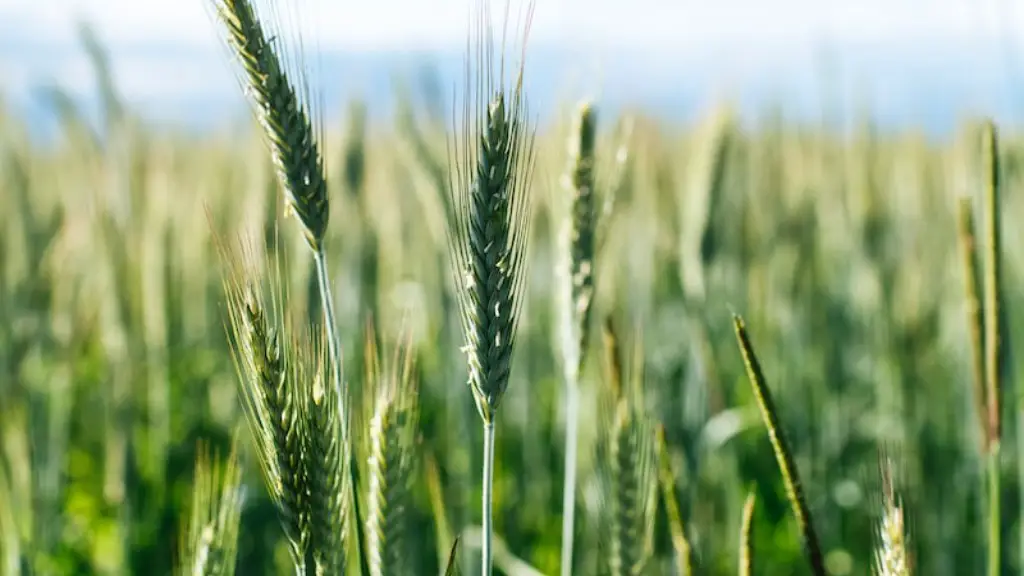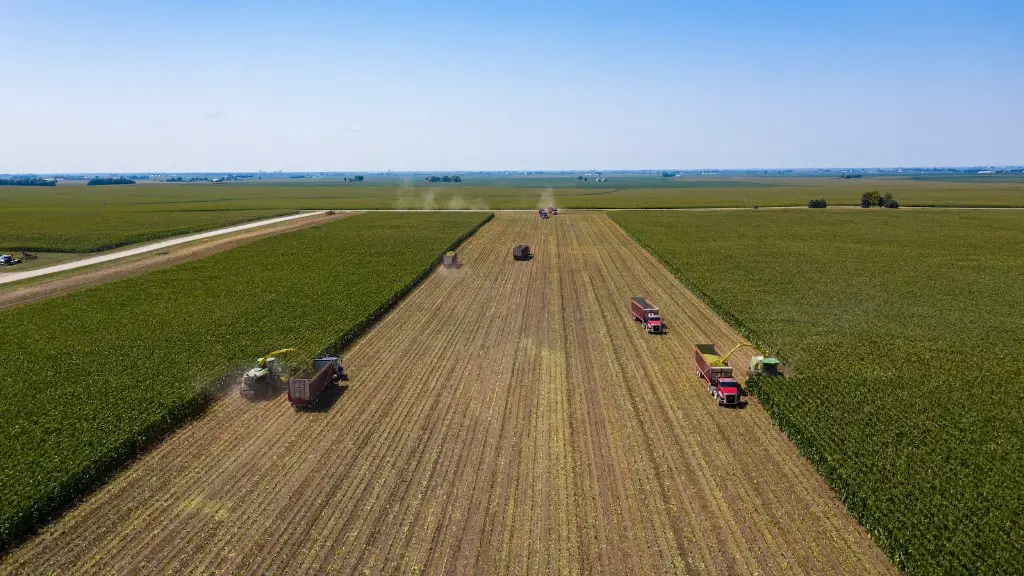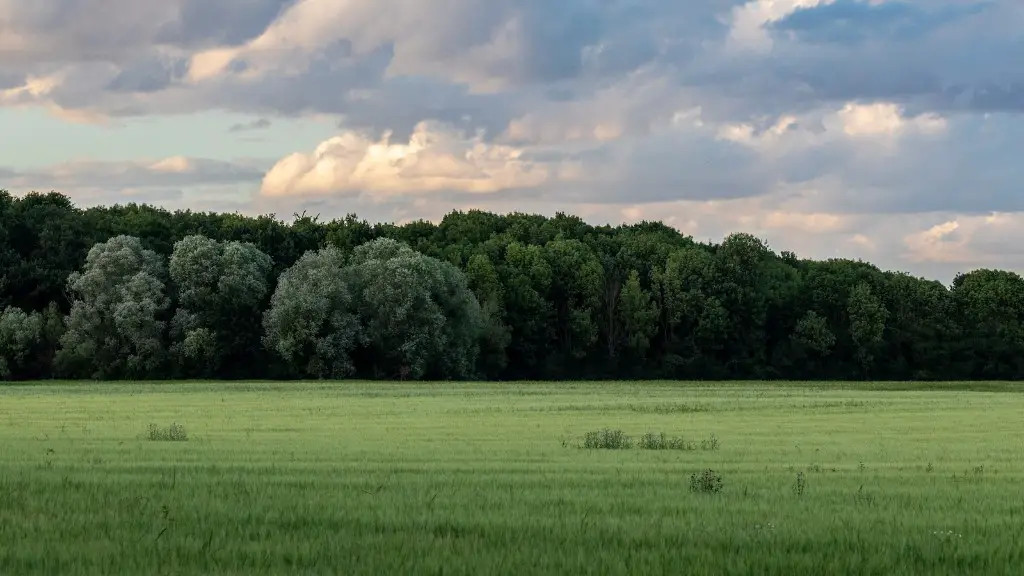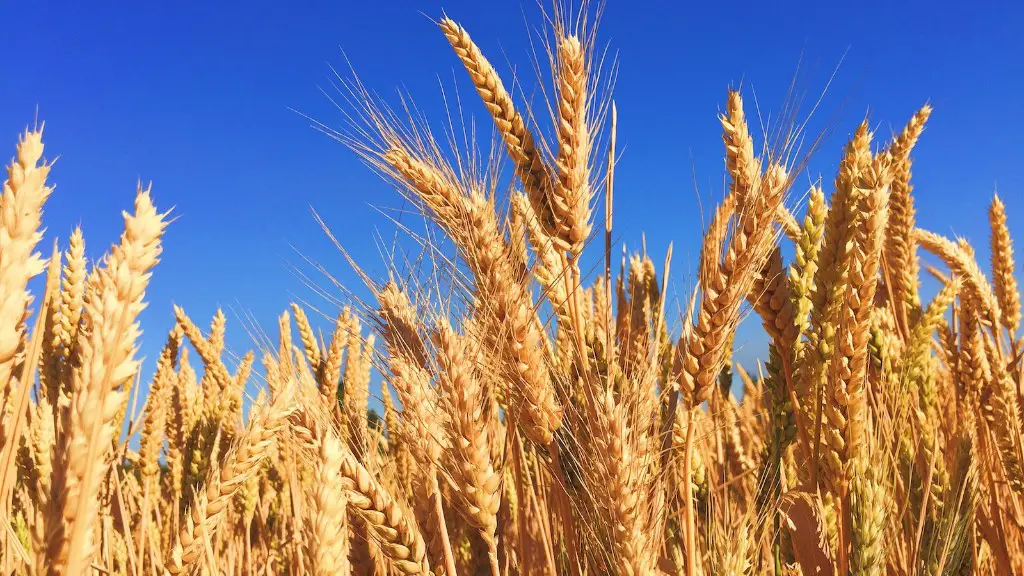In order to understand the importance of agriculture, one must first understand the history of agriculture and how it has impacted the world. Agriculture is the process of producing food, fiber, and other desired products by the cultivation of plants and animals. Agriculture has been a vital part of human civilization for over 10,000 years and it is estimated that over half of the world’s population is directly or indirectly employed in agriculture. The history of agriculture is a long and complex one that has been shaped by a variety of factors such as geography, climate, and technology. Agriculture has had a profound impact on the world and it continues to do so today.
It is important to know the history of agriculture because it is the foundation of the modern food system. Agriculture is responsible for the production of food, which is essential to the survival of human beings. Without a knowledge of the history of agriculture, it would be difficult to understand how the modern food system came to be. Agriculture has a long and complex history, and understanding it can help us to appreciate the food that we eat today.
Why is agriculture important in history?
The growth of cities and civilizations can be traced back to the development of agriculture. By domesticating crops and animals, early humans were able to provide a reliable source of food, which allowed for a population explosion. Today, the global population stands at over seven billion people, thanks in large part to the advances in agriculture that occurred thousands of years ago.
The discovery of how to plant seeds and domesticate animals was a huge turning point in human history. For the first time, people could stay in one place and know that they would have a reliable food source. This allowed for the development of permanent settlements and the growth of civilizations.
What impact does agriculture have on human society
Agriculture is an important part of many communities, providing both jobs and economic growth. Agricultural-based events, such as crop and livestock judging competitions and 4-H exhibits, are also important to many communities. Farmers Markets provide an opportunity for smaller farmers to interact directly with consumers and sell their products.
The ability to grow crops and tame animals changed the way humans lived. They were now able to produce a constant food supply which allowed the population to grow at a faster rate. Nomads gave up their way of life and began living in settled communities.
What is the meaning of history of agriculture?
The history of agriculture is the story of humankind’s development and cultivation of processes for producing food, feed, fiber, fuel, and other goods by the systematic raising of plants and animals Prior to the development of plant cultivation, human beings were hunters and gatherers. Agriculture allowed for the domestication of plants and animals, which led to the development of civilizations. Agriculture has played a major role in human history, and its impact can be seen in the way we live today.
Agriculture is essential to human life. It provides food, clothing, and shelter. It helps people to enjoy a higher quality of life. Agriculture is a vital part of the economy and provides jobs for millions of people.
Is agriculture important to society?
Agriculture is the world’s largest industry. It employs more than one billion people and generates over $13 trillion dollars worth of food annually. Pasture and cropland occupy around 50 percent of the Earth’s habitable land and provide habitat and food for a multitude of species.
Agriculture has definitely had a huge impact on humanity. It allowed us to settle down in one place and grow our own food. This led to the development of civilizations and the advancement of human knowledge.
What is the most important contribution of agriculture to mankind
Agriculture is one of the most important sectors of the economy, as it ensures a constant food supply for the population. This in turn ensures that the workforce is fed with energy to supply labour to industries and other economic sectors. Agriculture also plays a major role in food security, as it helps to provide food for people in times of need.
The development of agriculture is called a revolution because it has had such a radical impact on human society. Agriculture allowed for the development of cities, the industrial revolution, and a massive increase in the human population. These changes have shaped the course of history and have had a profound impact on the way we live today.
Did agriculture change society forever?
The Agricultural Revolution was a turning point in human history. For the first time, people began to domesticate plants and animals and to live in permanent settlements. This shift away from hunting and gathering changed humanity forever. The Agricultural Revolution ushered in a new era of prosperity and abundance, but it also brought with it new challenges and problems. Today, we continue to grapple with the legacy of the Agricultural Revolution.
Agriculture has always been a vital part of the economy, providing food and raw materials for industry. In recent years, it has become even more important as a source of income and employment, particularly in developing countries. The sector has been growing steadily in recent years, due in part to increased demand from a growing world population.
However, agriculture faces a number of challenges, including climate change, water scarcity, and soil degradation. These challenges threaten the sector’s future growth and the livelihoods of the people who depend on it. In order to ensure food security and sustainable development, it is essential that these challenges are addressed.
What are the benefits of learning agriculture
Agriculture is an important field of study for many reasons. It is the past, present, and future of human civilization. Agricultural practices and technologies are constantly evolving, making it a dynamic and interesting field to study. For those interested in entrepreneurship, agriculture provides a gateway to starting your own business. There are many opportunities for career advancement in agriculture. And finally, we need a new generation of agriculturists to help feeding the growing population of the world.
The Agricultural Revolution was a period of time when new crops and new methods of crop rotation were being experimented with. These new farming techniques gave soil time to replenish nutrients, leading to stronger crops and better agricultural output. Advancements in irrigation and drainage further increased productivity.
What was the most important effect of the Agricultural Revolution?
The Norfolk four-course rotation was a system of crop rotation that involved turnips and clover. This system was developed during the Agricultural Revolution and was probably one of the most important developments during this time. This system allowed for the intensification of agricultural output, which was essential for the growth of civilizations during this time.
More abundant food supplies could support denser populations, and farming tied people to their land. Small settlements grew into towns, and towns grew into cities. Agriculture produced enough food that people became free to pursue interests other than worrying about what they were going to eat that day. This allowed for the development of civilizations and the rise of cities.
Final Words
There are a few reasons why it is important to know the history of agriculture. First, agriculture is one of the oldest human endeavors and has been a major factor in the development of civilization. Second, agriculture has played a significant role in the economy and society of many countries. Third, agriculture has had a major impact on the environment. Lastly, understanding the history of agriculture can help us to better understand the challenges faced by farmers today.
Knowing the history of agriculture is important for a number of reasons. First, it can help us to understand how modern agriculture came to be. Second, it can provide valuable insights into the challenges that farmers have faced over the years – and continue to face. Finally, it can help us appreciate the many achievements of the agricultural industry, which is essential to our way of life.





